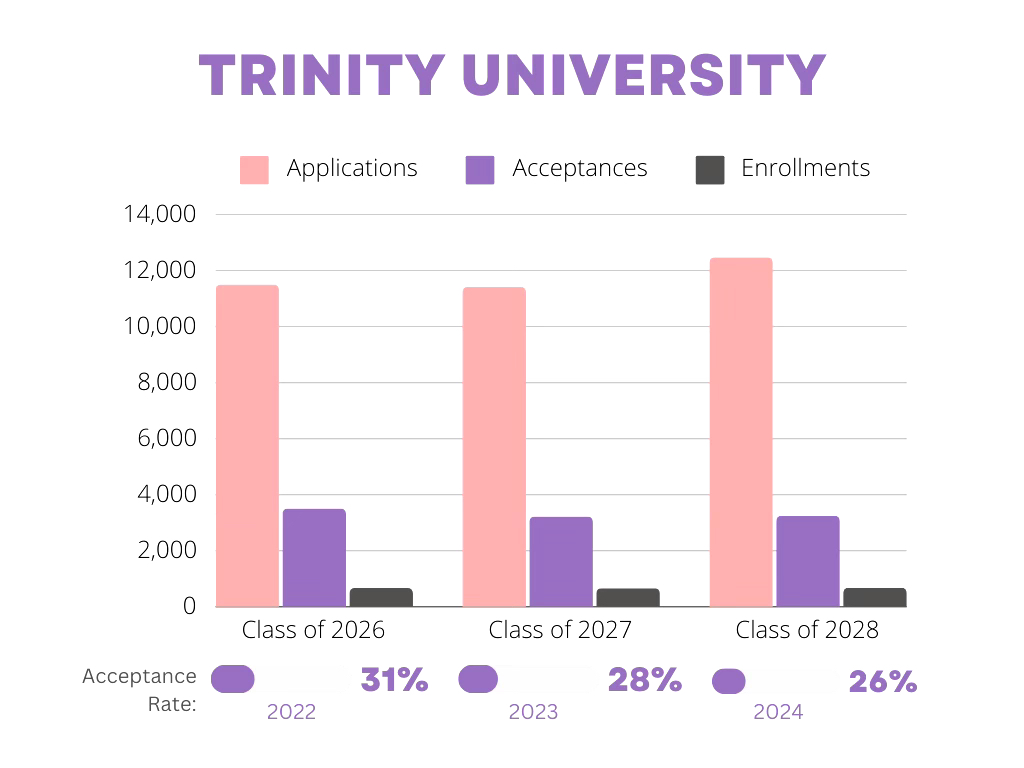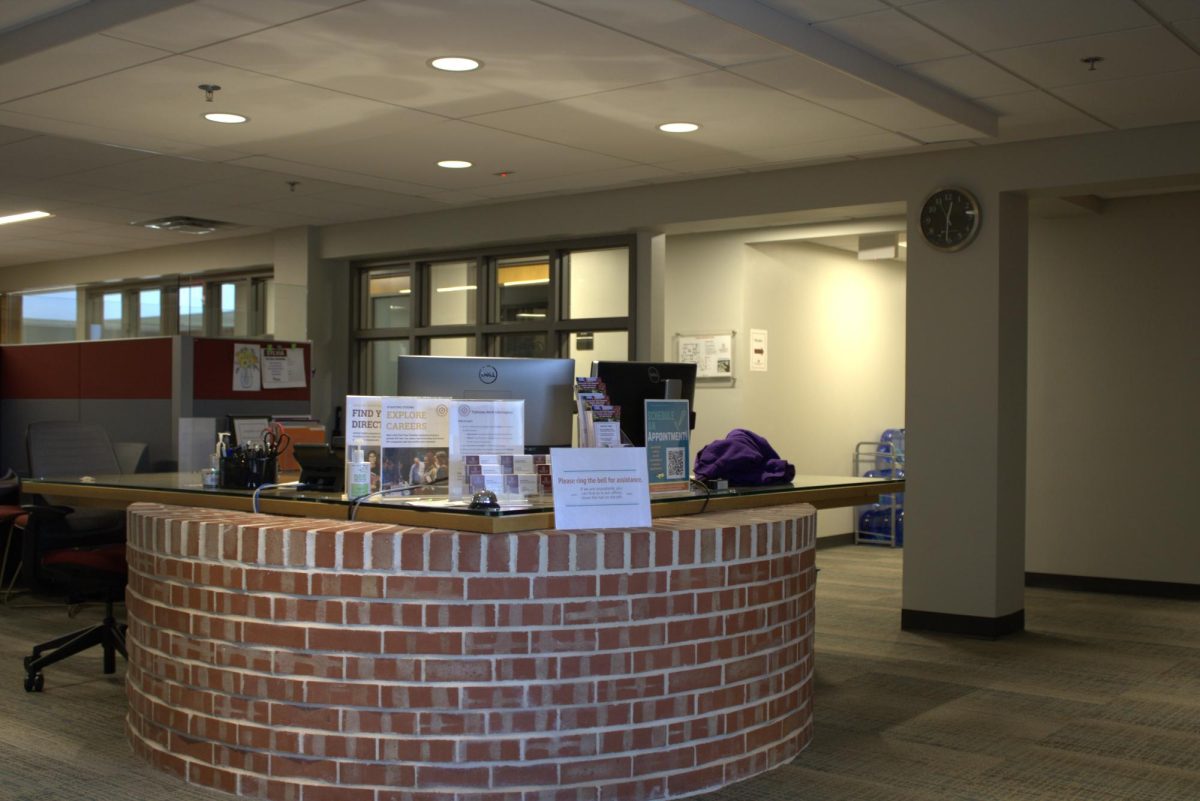We all understand the initial stress of applying to college and figuring out what everything means, how CommonApp works and the existential dread of thinking that your college decision will determine the rest of your life. One of the most important things that many people applying to colleges consider is how low the acceptance rate is. To the high school student, Trinity University’s acceptance rate of 26% shows that enrollment at Trinity is challenging, competitive and will expect more from the applying academic. Yet, a lower acceptance rate isn’t as impressive as you might think.
A commonly overlooked factor is how the school’s admissions increase yearly; almost 1,000 more students applied in 2024 than in 2023. The increase in applicants, with the same amount of students being accepted as last year, entails a lower acceptance rate in itself. An increase in applications might be due to the university casting a wider net to students who may have no chance of getting accepted. This doesn’t mean that the university is particularly desirable. It likely means that more students are being roped into applying based on the university’s marketing and romanticized presentation. Put simply, Trinity isn’t accepting fewer students, they’re likely just improving their marketing and adding more high school seniors to their mailing list.
The acceptance rate might also tell high school seniors that the university will ensure a “successful career” following graduation.
That is not to say that Trinity doesn’t have great resources such as the Center for Experiential Learning and Career Success (CELCS), who do a phenomenal job preparing enrolled students for going into the workforce. However, realistically the job market can be extremely confusing for the recently graduated student and the university acceptance rate has very little to do with post-graduation plans.
From the major you’re pursuing to the inevitable uncertainty that the college student will face after graduation, it’s safe to say that Trinity’s acceptance rate will be the last thing you think about after graduation. We all have things to contribute to the confusing world we are forced to live in and we should focus on ourselves and our own careers. Students at a university with a higher acceptance rate, people not enrolled at a university or people with a lower GPA aren’t any less capable or intelligent than you are.
Moreover, acceptance rates don’t matter in the greater scheme of things. The notion that students at schools with higher acceptance rates are less likely to pursue successful careers is false. Most of the time, it’s not about the college you are enrolled in, but rather the effort and curiosity you put into the pursuit of your degree. We, as academics, should push away meritocratic attitudes and focus more on creating more equitable opportunities for people regardless of their educational attainment. Just because we are smart, we shouldn’t act like we have corporate or authoritative power over others.
We all have different things going on in our lives, and we should obviously keep doing the best we can for ourselves, but we should also contribute more to our community. Contributions include things such as volunteering, donating to charity, joining clubs and standing up for what is just, not only academically, but in all aspects of a community that clearly require modulation.





